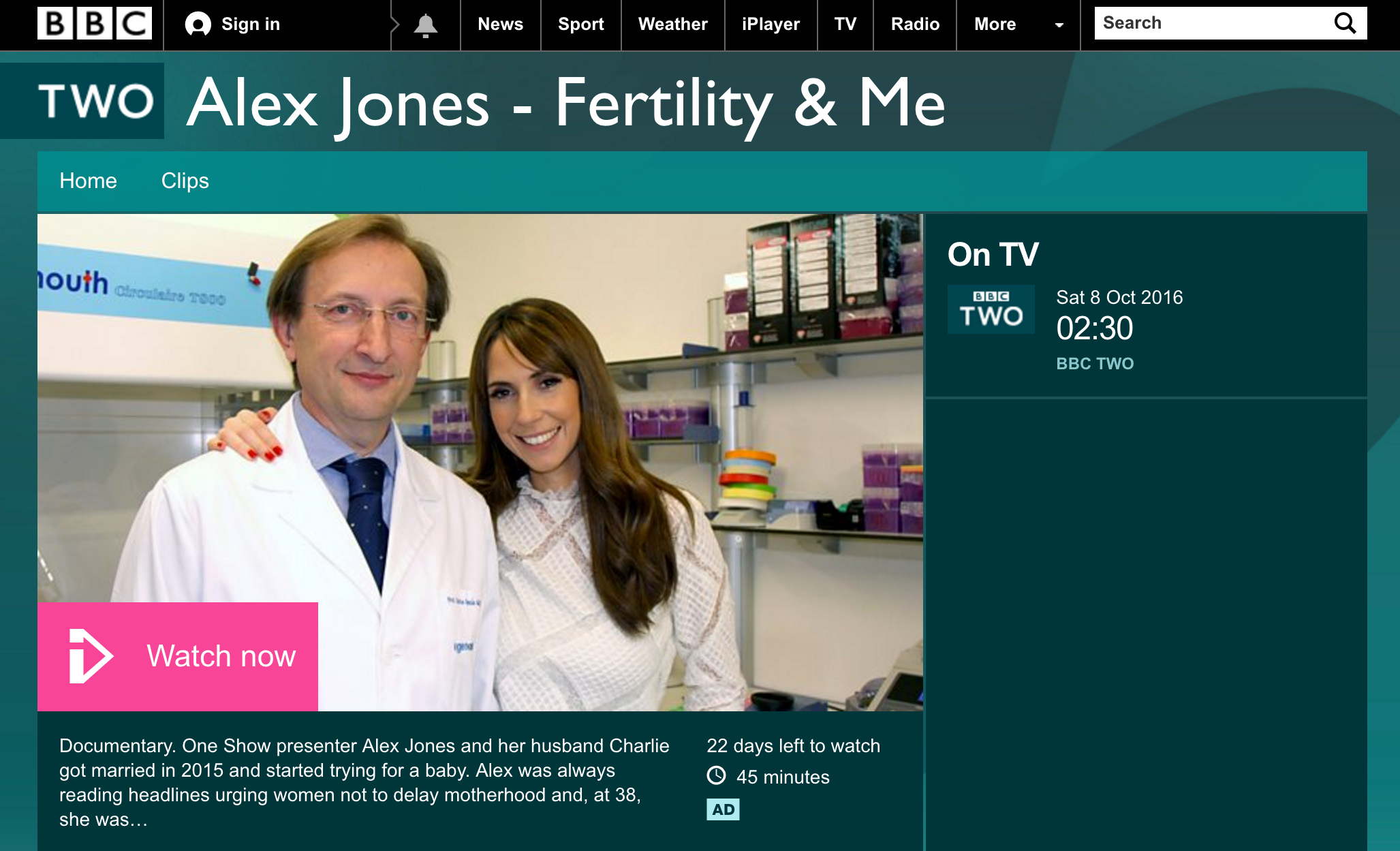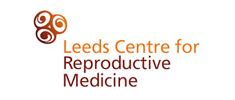
Last week a new TV programme Alex Jones- Fertility & Me was broadcast on BBC1.
I was the consultant medical advisor to the programme, which was a new role for me and one that was both interesting and challenging.

I met Alex at the beginning of the year with the producer, who wanted to explore factors that affect natural fertility. Alex is high profile and best known for her daily appearance on The One Show. Last Christmas she got married at the age of 38, after which she discovered that her mother had gone through an early menopause at 43. She therefore had a very personal reason for exploring the factors that might influence her fertility.
Following initial research and discussions I felt it was important the programme considered the key factors that are known to influence natural fertility in both men and women such as, body weight, the need for supplements and the factors that affect male fertility, including exposure to environmental toxins and testicular warming.
1.7 million viewers
Although it didn’t cover the key factors affecting fertility, the programme was a real success. After months of planning, various script changes and interviews in many different locations in the UK and abroad, Alex and the production team presented this complex subject in straight-forward, engaging and empathetic way. The results spoke for themselves. The programme was watched by 1.7 million viewers and had a very healthy audience share of 17.6% for that particular time of day.
Assisted Conception and Endometrial Receptivity Testing
The contributions by my colleagues, Allan Pacey and Tim Childs came across particularly well and I thought the programme covered assisted conception in an interesting and balanced way. For example, it didn’t just look at standard IVF, but included some of the new advances that are taking place as well. Alex went to Spain to look at endometrial receptivity testing, which is an exciting advance, albeit still in a research phase and certainly not universally available.
Alex was also filmed in Gothenberg, where uterine transplants for women who are born without a uterus have been pioneered. Whilst this is by no means mainstream it is certainly of great interest for the future.
The programme didn’t have time to include all of the main causes of infertility, which from my point of view as a consultant, was disappointing. I felt the BBC could have extended the subject matter to a three-part series incorporating three distinct areas:
1. The factors that affect natural fertility, including, most importantly, the age of the woman and to a lesser extent the age of the man (the key issue for Alex).
2. The causes of infertility and their treatments.
3. Finally, a third programme on modern advances and what may be available in the future.
Nonetheless, I was able to influence the single programme format by advising on the script and rewriting parts of the narrative when necessary.
Congratulations Alex!
Of course the programme ended on a very positive note with the announcement that Alex is expecting her first child. Like many people I am delighted for both Alex and her husband and wish her well on the journey through pregnancy and beyond.
Further information about the programme on the BBC website here










